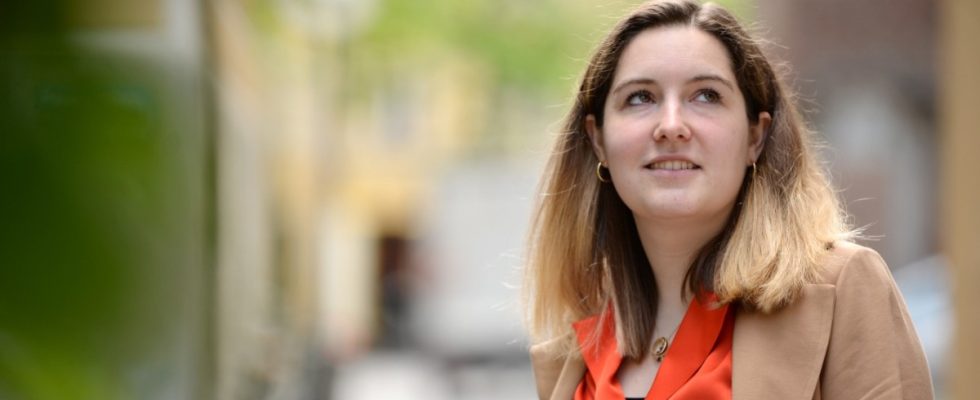You can’t get any closer. From her living room, Johanna Gressung should be able to hear the Catholic heart of Munich beating. Up here, on the fifth floor, the Frauenkirche is only an arm’s length away for the eyes. There is an impressive view from the 30-year-old’s dining table, where she serves freshly brewed cappuccino. Born in Rhineland-Palatinate, who lives here with her husband, is a pastoral officer, so she studied Catholic theology with qualifications for higher tasks. On June 1, she takes up an office that was previously reserved exclusively for priests in the archdiocese of Munich and Freising: she becomes spiritual director of the Bund der Deutschen Katholische Jugend (BDKJ) of the diocesan association of Munich and Freising and at the same time head of the archbishop’s youth welfare office. She will call herself a diocesan youth pastor.
SZ: Congratulations, Ms. Gressung! They go down in the history of the archdiocese. Previously, only priests were allowed to spiritually lead the political youth association. Now you take over the office – as a woman. How could this happen?
Johanna Measurement: (laughs). Thanks! Previously, only priests proposed by the cardinal could run for office. The BDKJ fought for this to change and for us to open the position to other pastoral professional groups so that we can also become more diverse at this point. In times when there is a shortage of priests, it is important to ask the question whether a pastoral officer who is also spiritually trained can do this just as well.
Cardinal Reinhard Marx gave in to the urging of the youth association – to counter the disillusionment with the stuck reform of the synodal path?
I think so, I can only speculate. But due to the opening of the office, this time there were two women and a priest who were allowed to vote. Being a woman played a role – it was part of the decision I guess.
What does a spiritual association management that represents around 102,000 young Catholic people do anyway?
It’s incredibly diverse. Preparing for a service is just as important as taking a position on political issues for the BDKJ. In the state elections, for example, the lowering of the voting age, which we are campaigning for, will be huge again. In our individual associations, I am less responsible for spiritual content than for how the often vacant spiritual positions can be filled or further developed, for example with the girl scouts.
Your job advertisement stated that you should actively work to prevent sexualized violence against children and young people. What are you up to?
Of course, I am committed to protecting children and young people. But it is also important to me that the prevention center that we have in the Archbishop’s Youth Welfare Office is no longer limited, but is permanent – it exists parallel to the general prevention center of the archdiocese. It is about the preventive training of volunteers, but also about dealing with current cases, for example in youth camps.
How many current cases are we talking about?
Luckily only very few. However, we notice that sensitivity has increased enormously in recent years, both among young people and among group leaders. That’s worth a lot to avoid something happening. We have a new online tool that is intended to provide low-threshold support for the prevention of sexualized violence with examples from the everyday life of youth work (www.eja-muenchen.de/praevention). There are independent incident contacts if something strikes someone as odd or not clear.
Is there still a Catholic youth who wants to get involved?
Yes, especially in the ranks of the BDKJ. They make a tremendous living from finding community where they get involved, but also regularly asking themselves the question: Is this still my church? The number of members within the associations of the BDKJ is currently increasing again.
Church life is not necessarily what electrifies young people in the big city environment. Your idea to win you over to questions of faith?
In any case, it must be social media enabled. We have to show that as Catholic youth we are not as dusty as the Church as a whole likes to appear. And diverse, diverse, people of all genders, that also means that you can find people in our groups who may not all be Catholic. It’s about promoting personalities, opening up spaces that are shelters, where you can see who I actually am and what do I do with my life to make it fulfilling?

